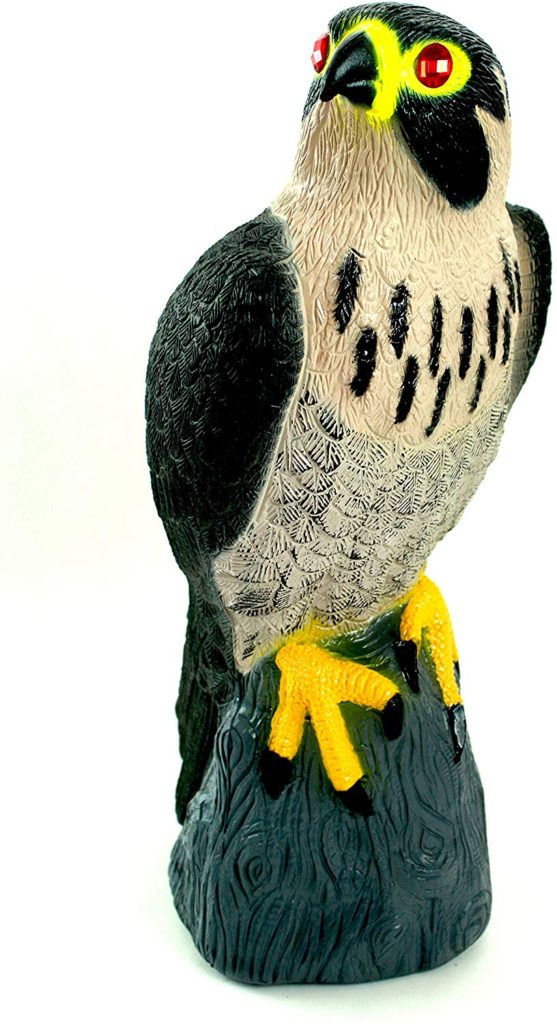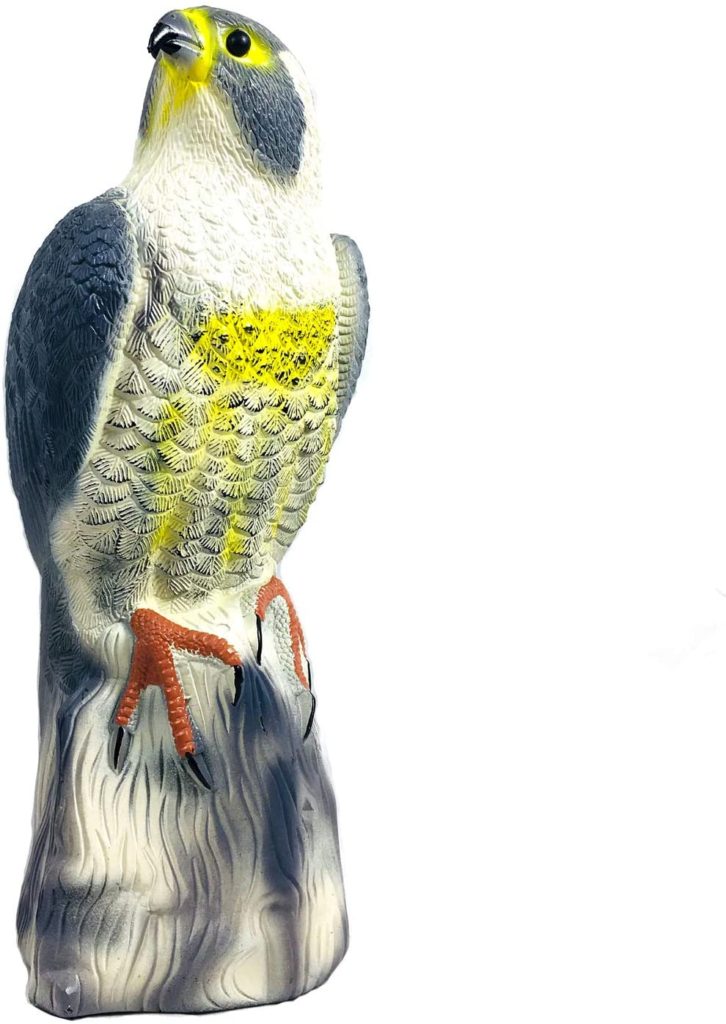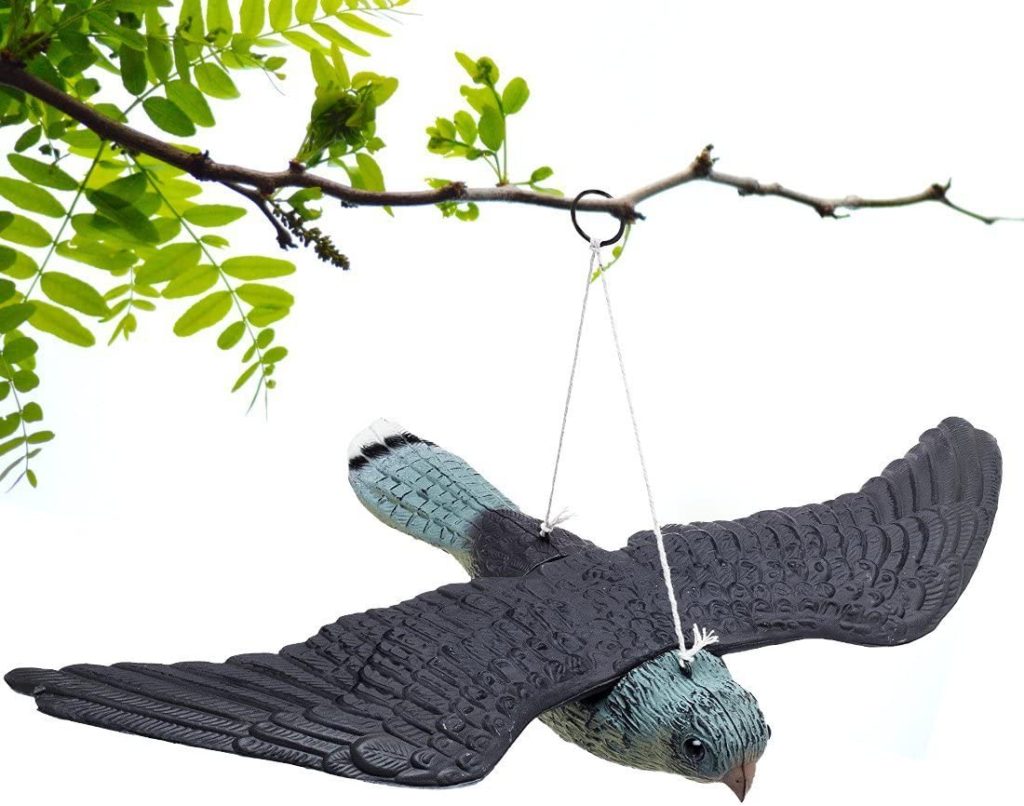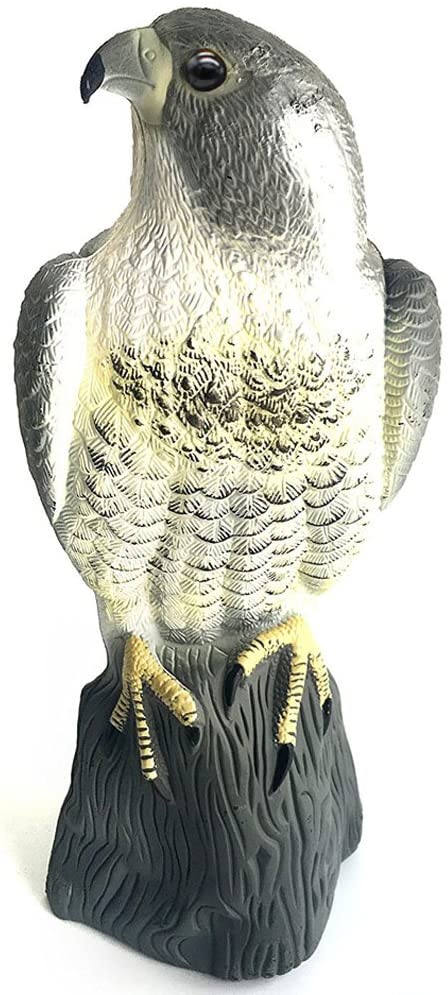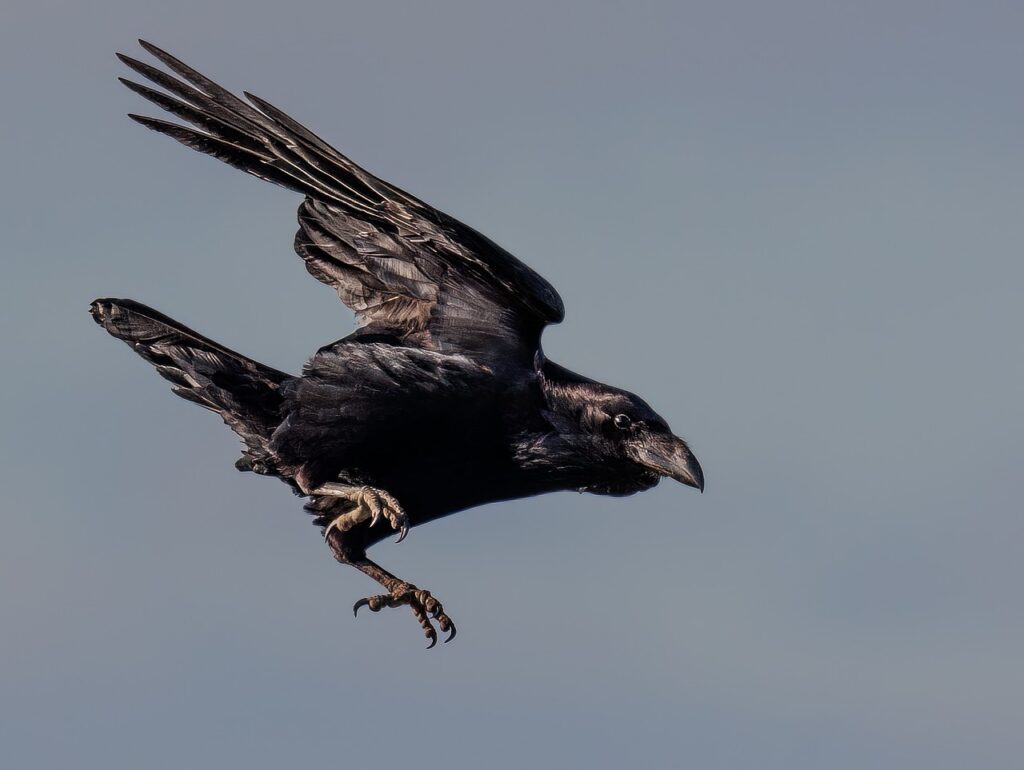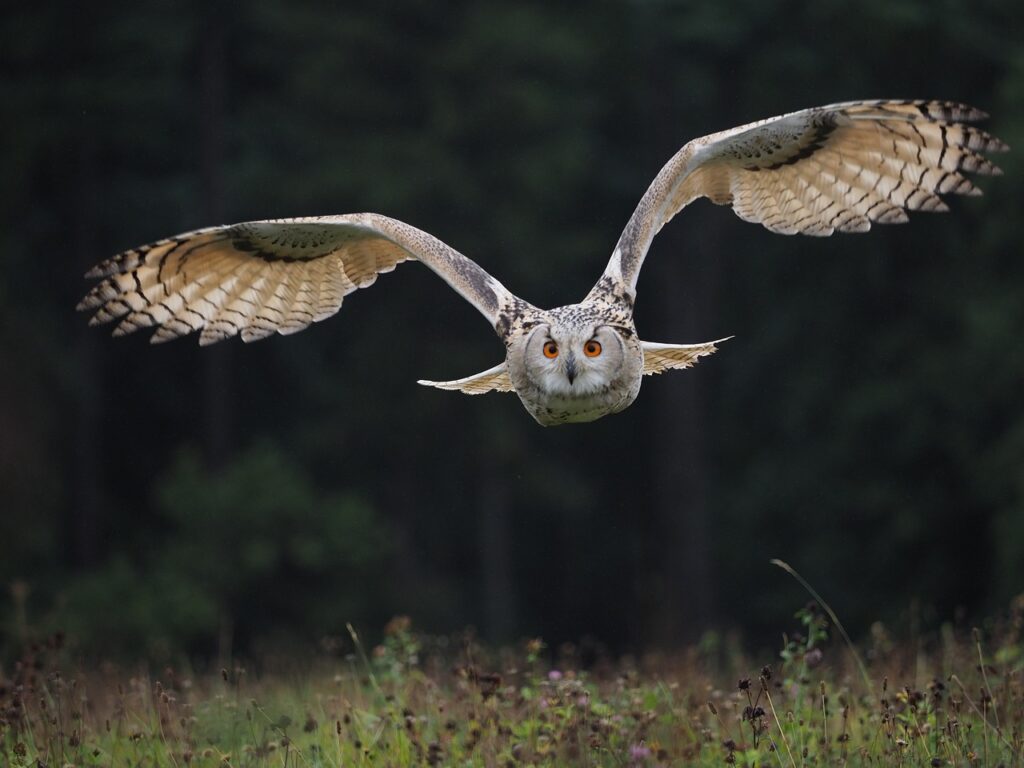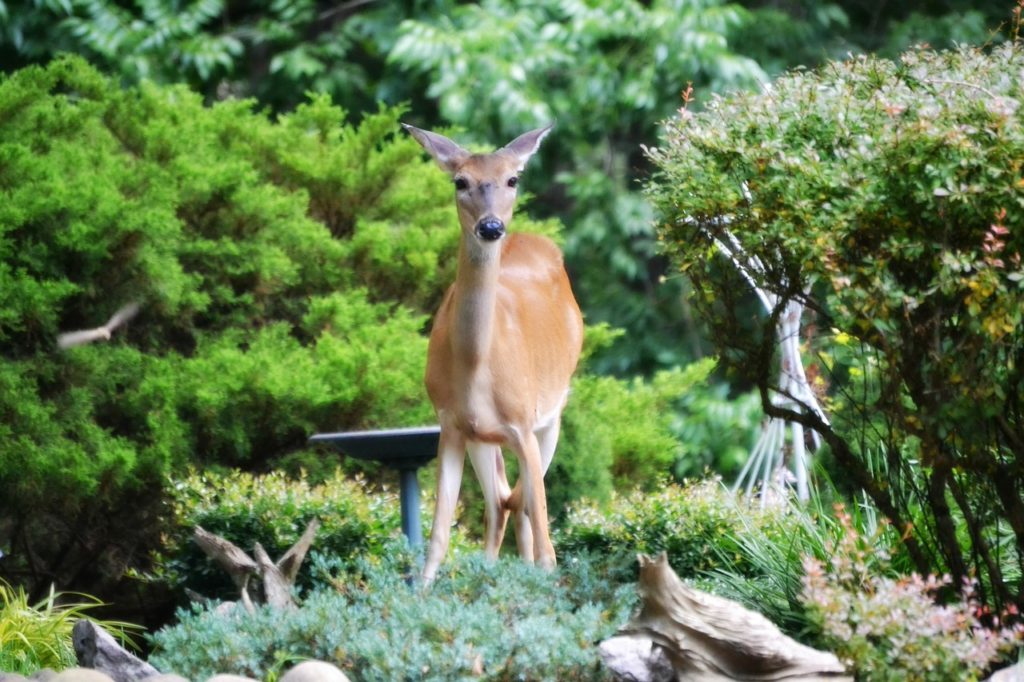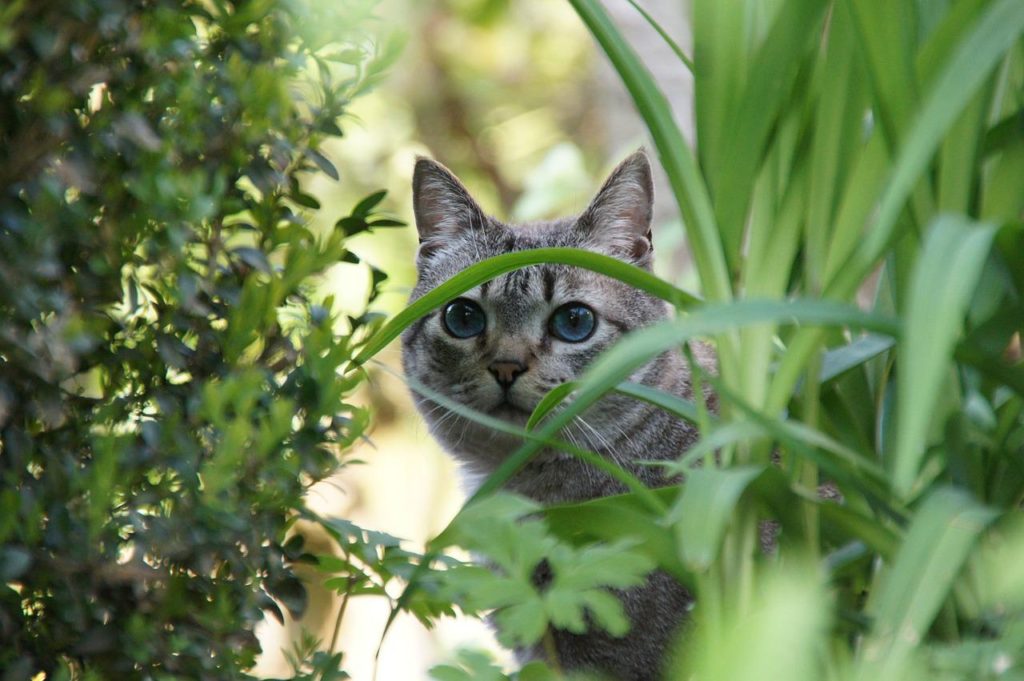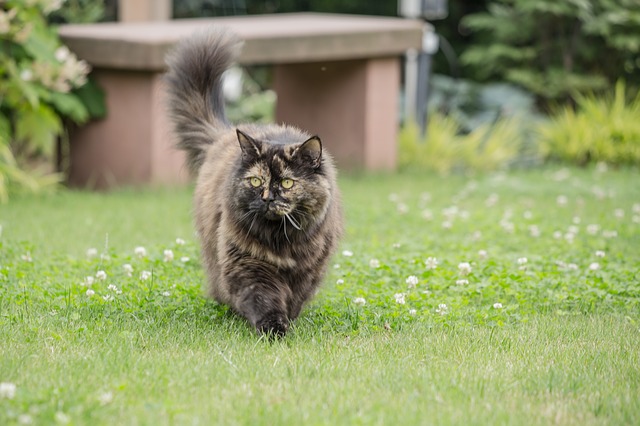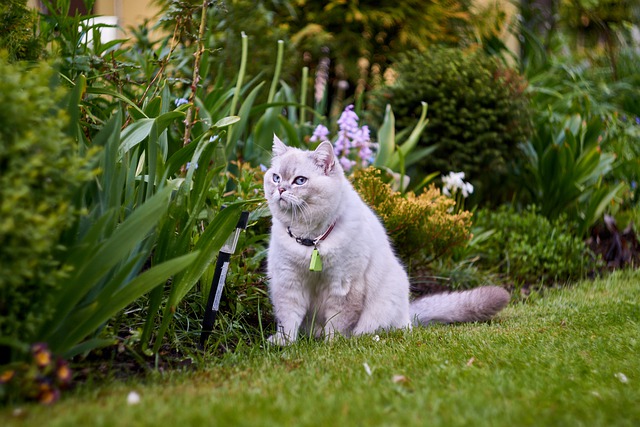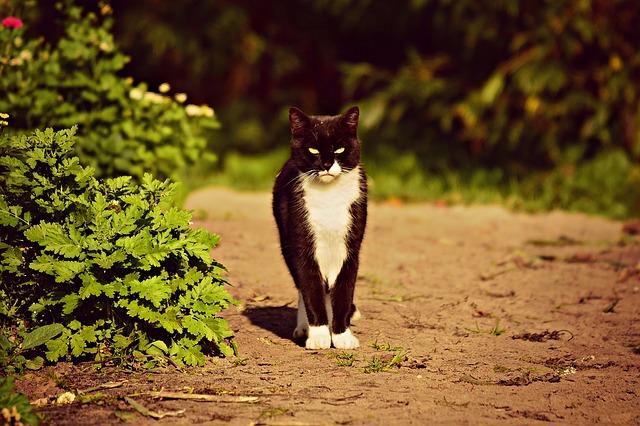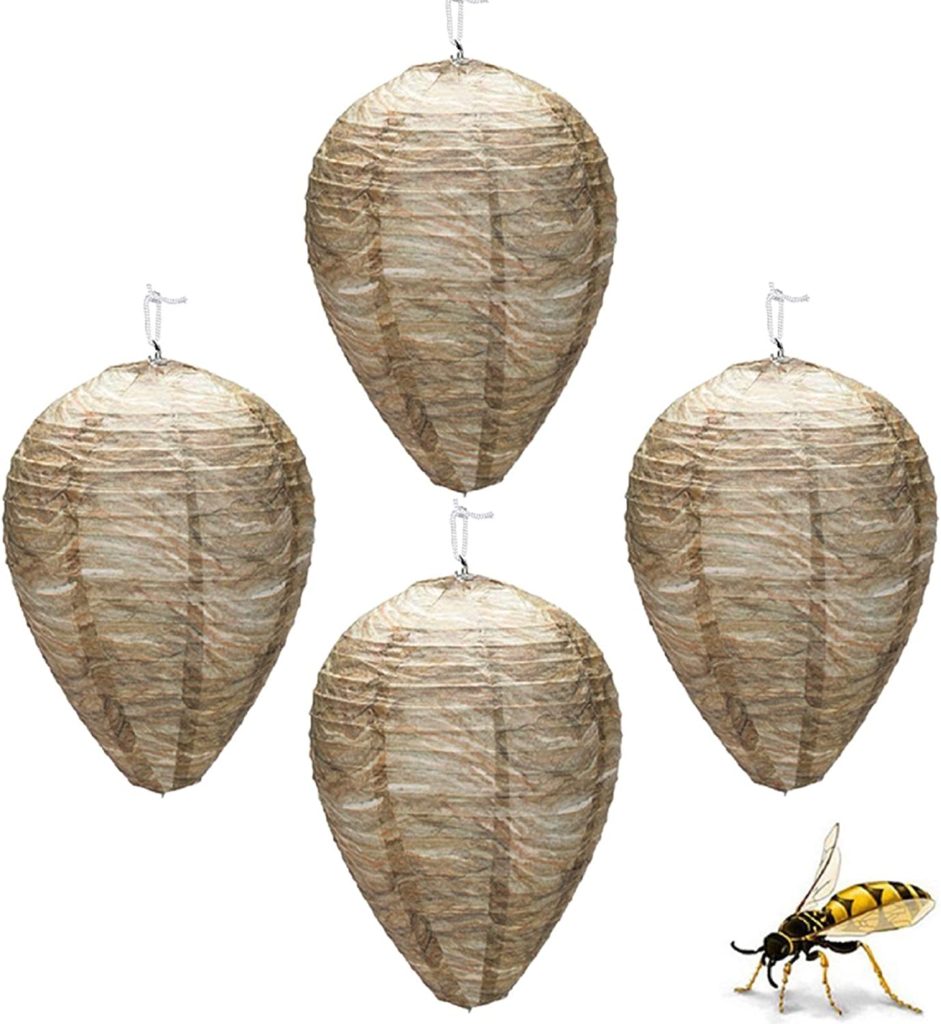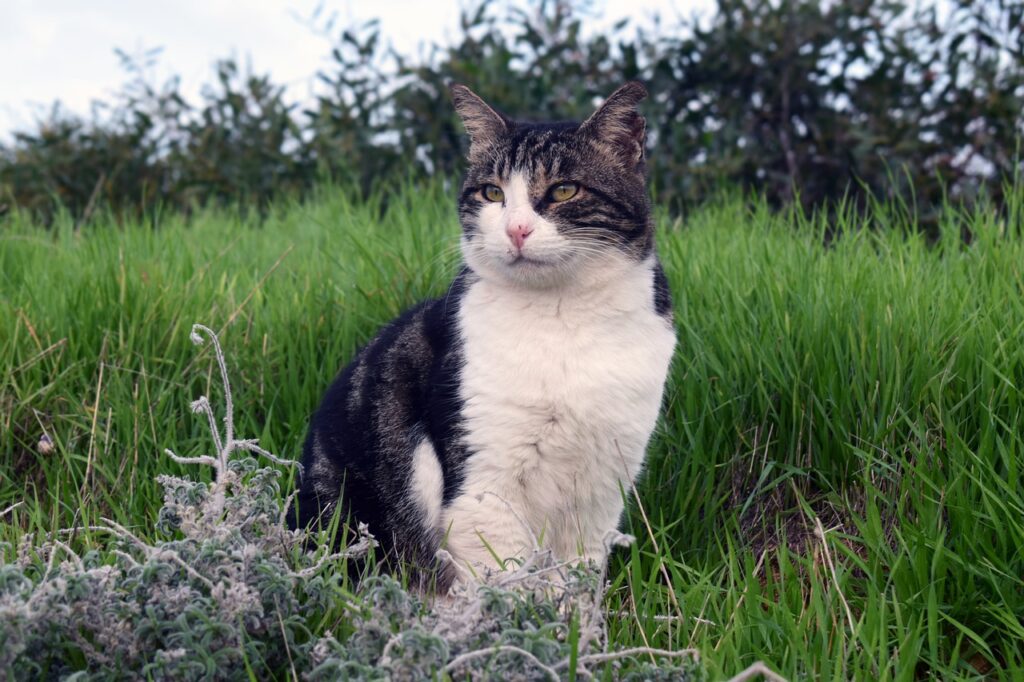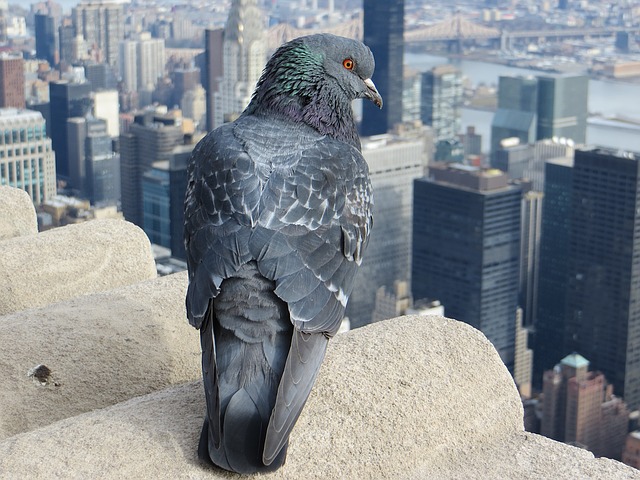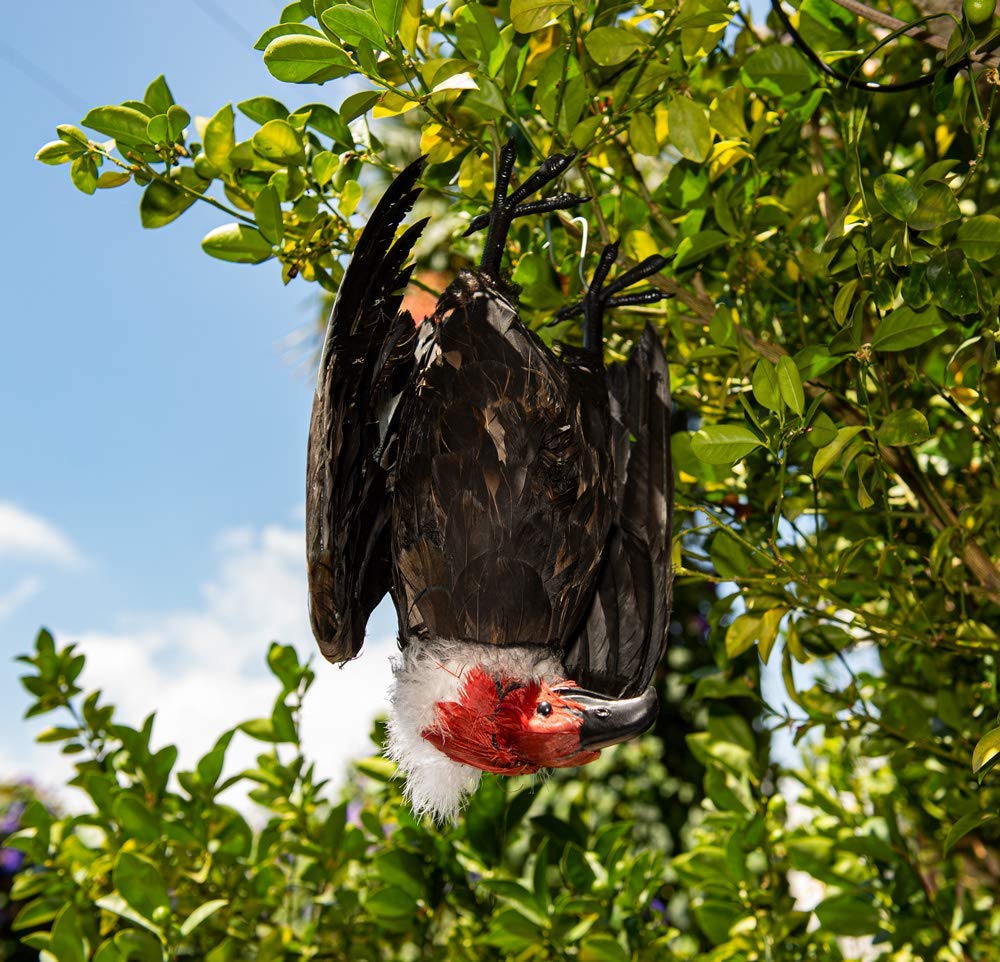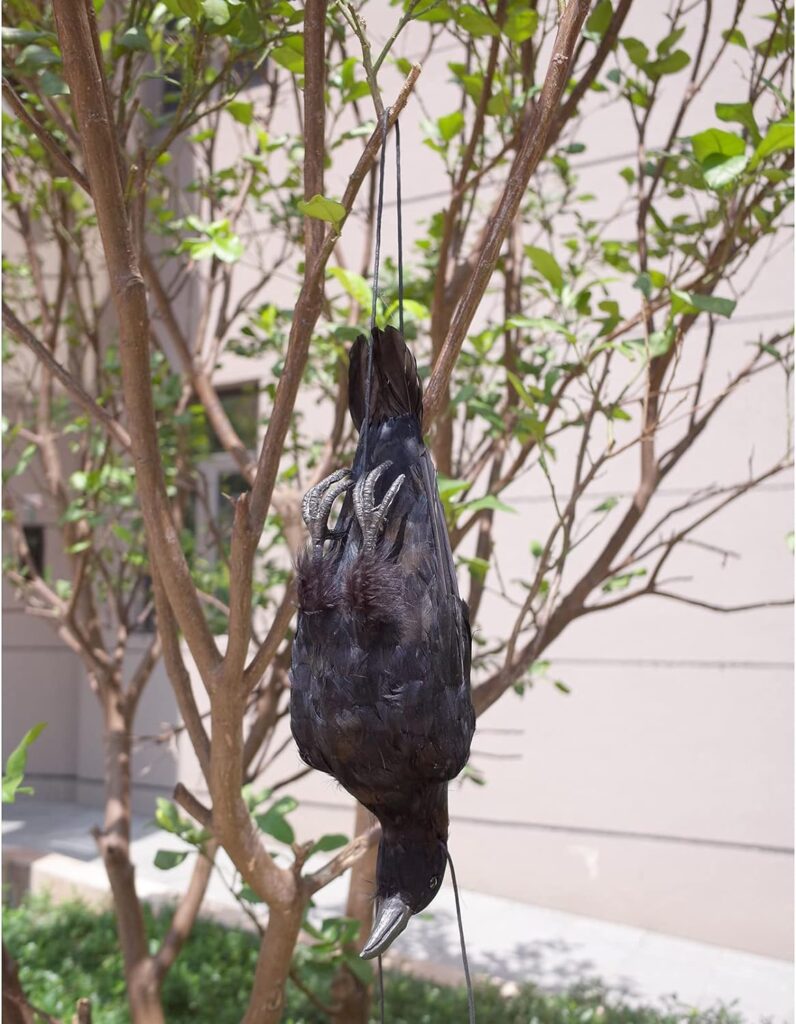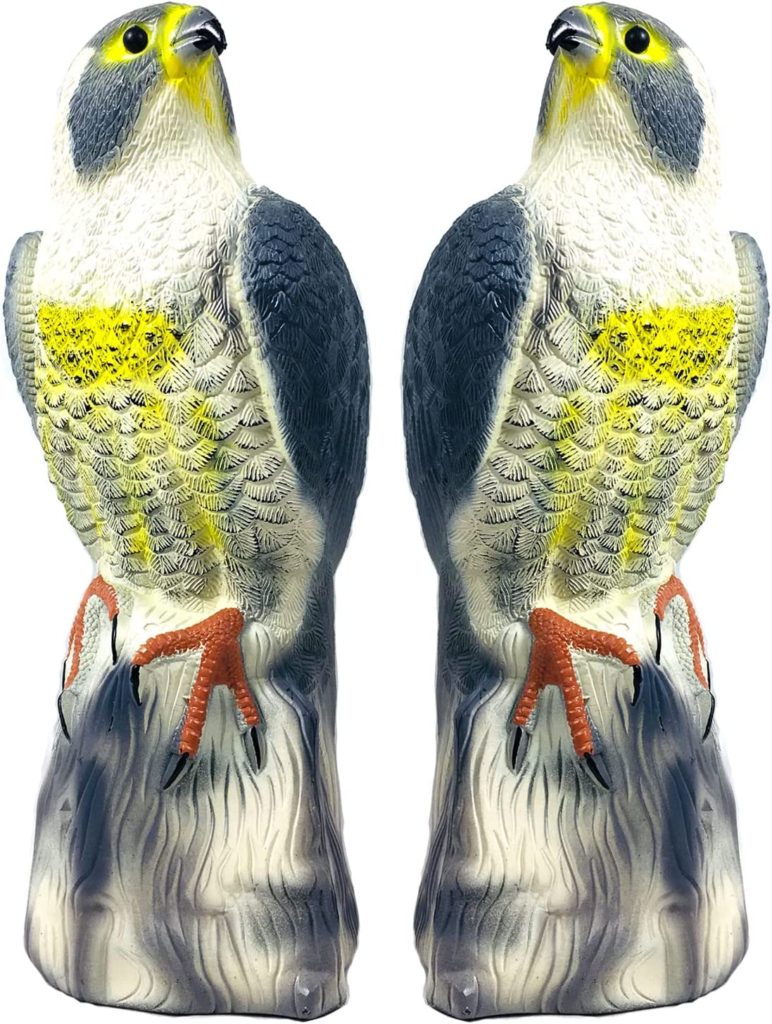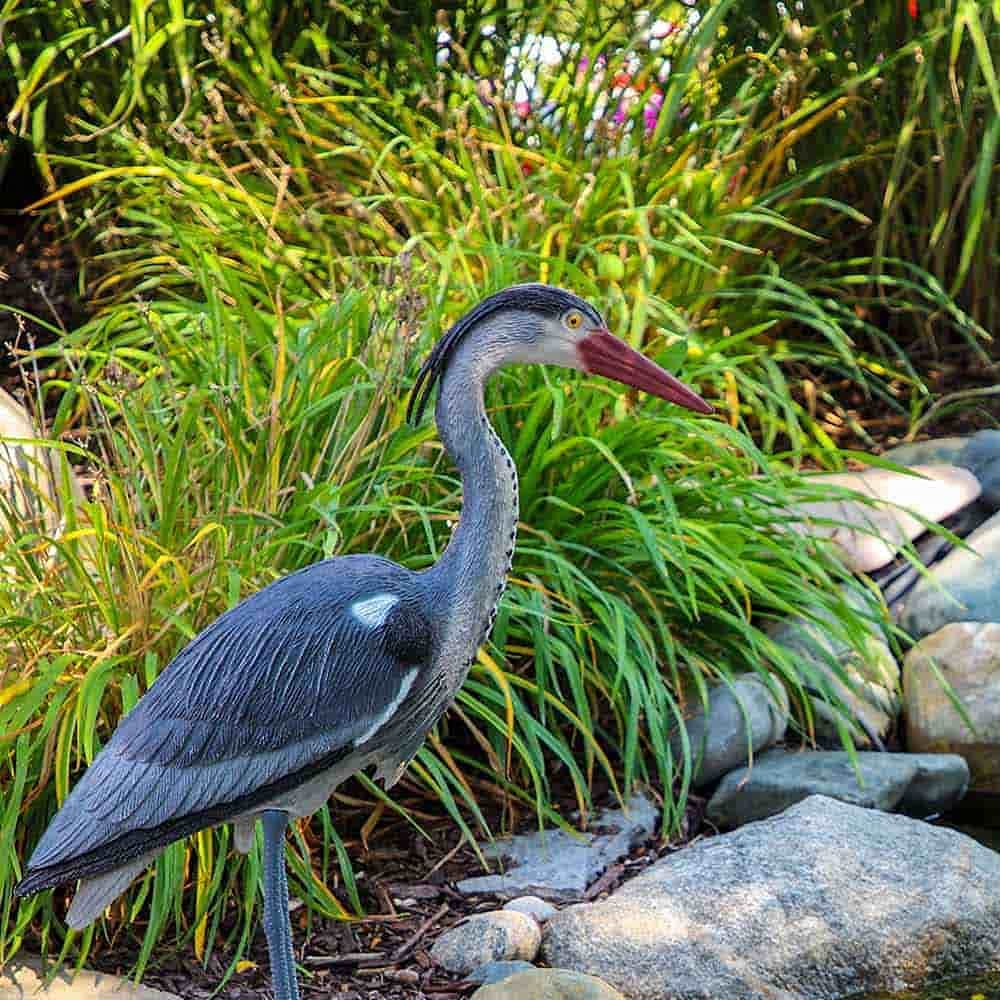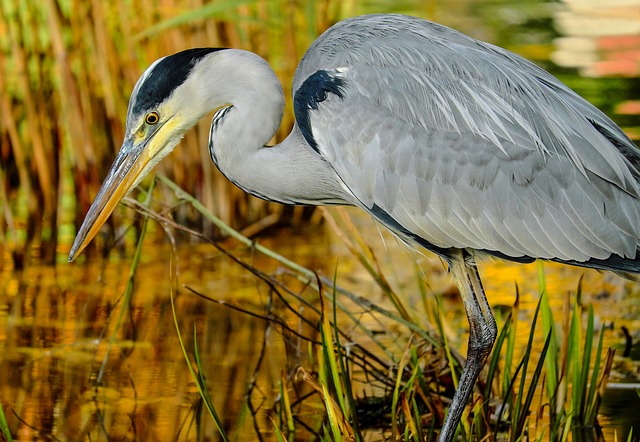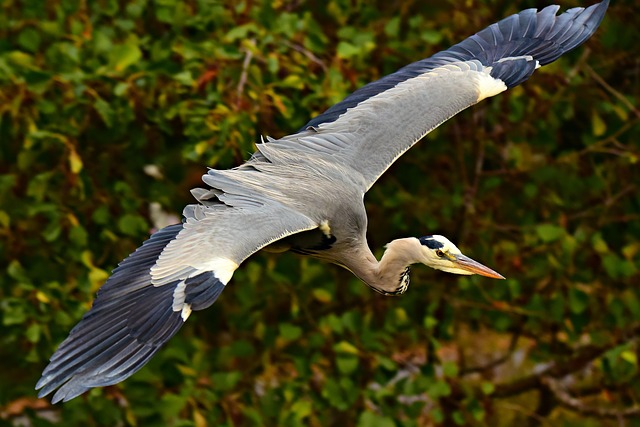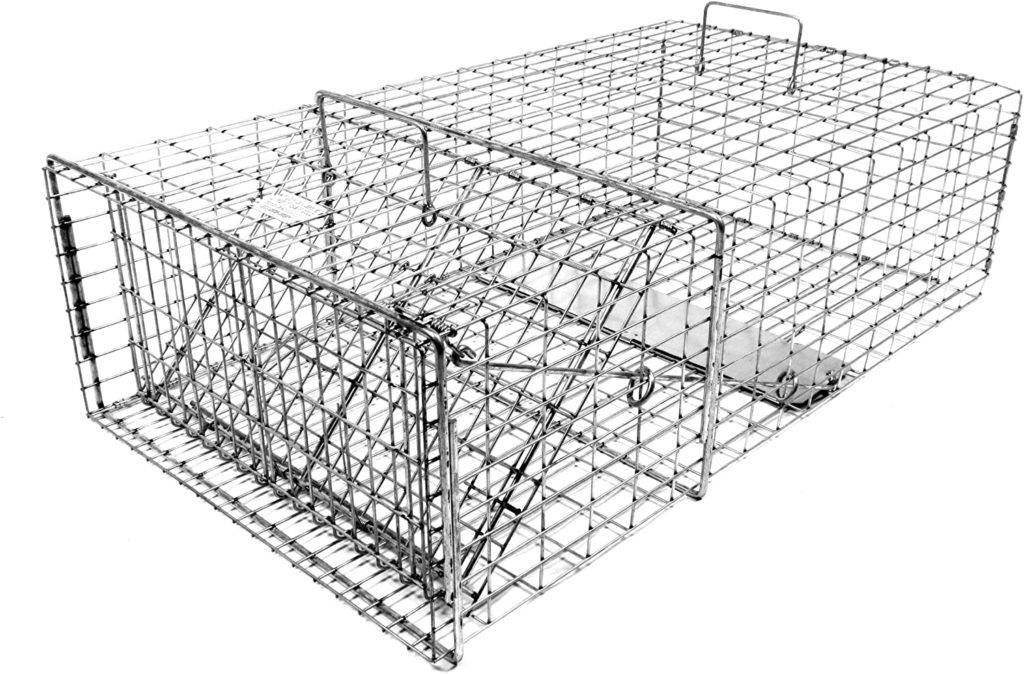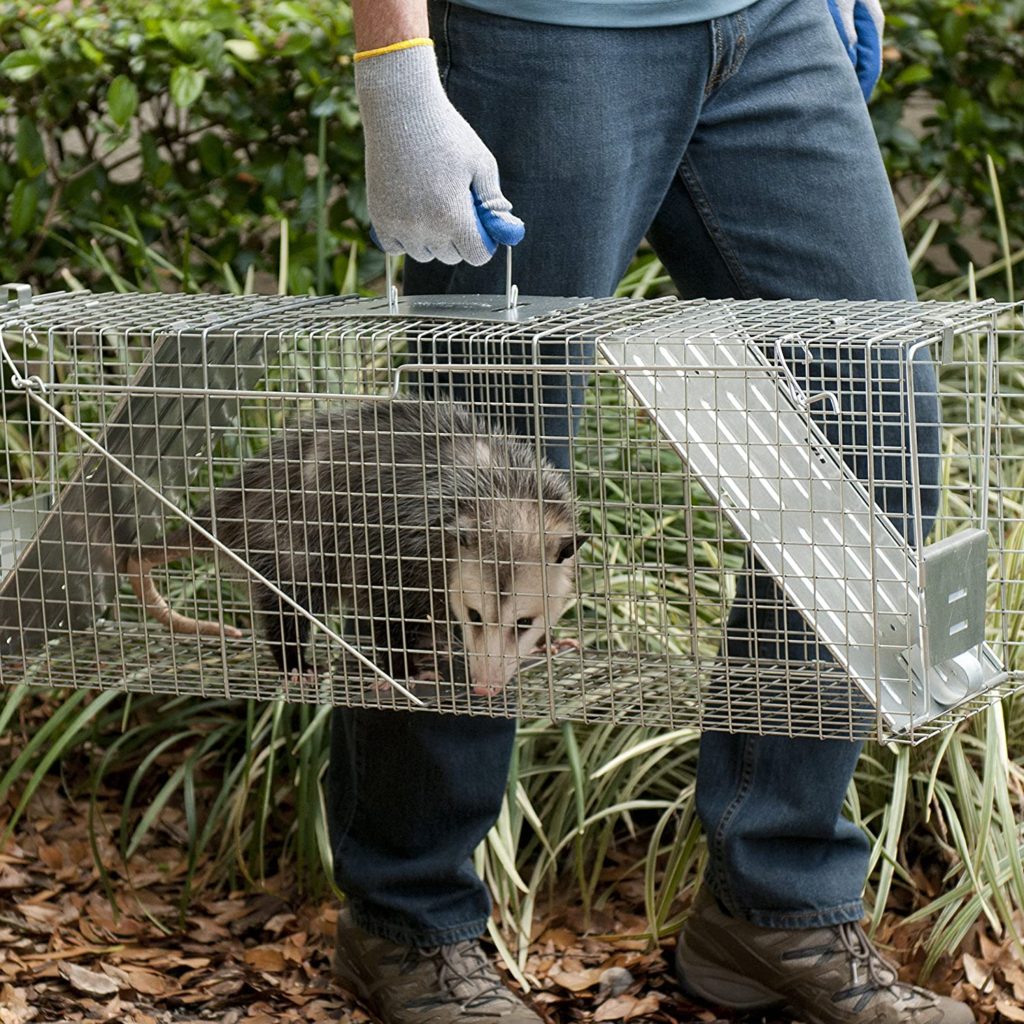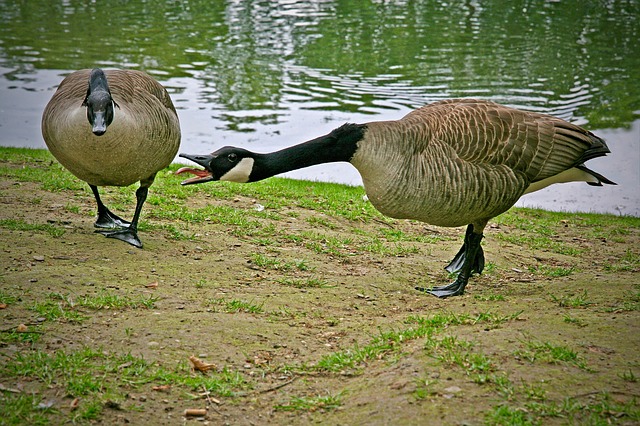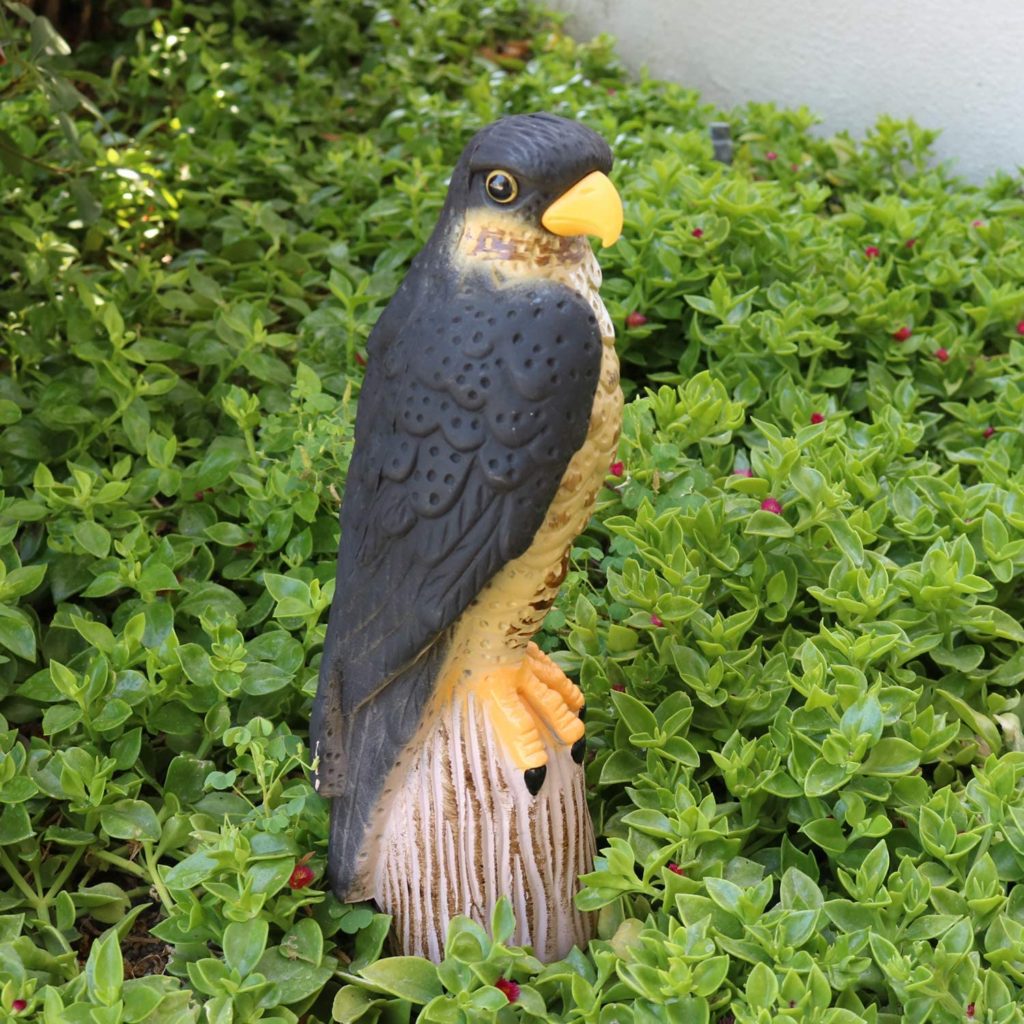
Dealing with the damage and mess caused by pest birds is never fun. However, you actually don’t need to spend much time or money in order to get rid of birds and other pest species. With the help of a falcon decoy, you can take advantage of their natural fear of predators to keep pests away. So here’s everything you’ll need to know about falcon decoys and how to use them.
Why A Falcon Decoy?
Falcons are birds of prey that feed mainly on birds but also on small animals as well. These amazingly fast-flying hunters are widely distributed around the world. In fact, falcons can be found on all continents except Antarctica.
They also hunt during the day. Therefore falcons are automatically recognized by a wide range of pest species as a serious threat. And a fake falcon uses this natural fear to help keep pests away from your property.
What Animals Do They Keep Away?
Falcon decoys are used to deter:
Pest Birds
Pest birds of various types can be a major problem. They often nest in buildings and outdoor structures. They are notorious for pooping and making a mess on balconies, cars, boats, decks, lawns, docks, and patio furniture. Others pest birds may steal fruits, vegetables, and seeds. And some simply make too much noise.
Falcon decoys are often used specifically to deter birds like pigeons (a favorite prey of real falcons), doves, swallows, crows, starlings, sparrows, blackbirds, woodpeckers, seagulls, and waterfowl. Although you can use a fake falcon to scare birds of just about any bird species you may be having a problem with.
Backyard Pests
Luckily falcons also hunt a variety of animals other than birds, which also happen to be considered pests as well. Therefore you can use a decoy to scare squirrels, chipmunks, moles, gophers, woodchucks, and rabbits. They are also used to scare away mice, rats, and even snakes since falcons eat them too.
Other Falcons
Many people use a falcon decoy to deter real falcons. That’s because falcons are known for aggressively defending their territory. And the sight of a decoy may cause local falcons to stay away so that they can avoid a fight. Adding a decoy can be worth a shot if you are raising chickens or have a backyard pond that’s full of fish you’d like to protect.
Falcon Decoy Basics
A falcon decoy is a visual deterrent. It looks just like a real falcon and that is what scares pests out of the area since they don’t want to end up being on the menu. Different from other pest control methods a decoy will work around the clock to deter pests.
It’s also a humane option since it won’t actually harm pests it just frightens them. And there are no toxic or poisonous chemicals to worry about so using one is safe for pets and humans as well.
Decoys are usually fairly inexpensive yet made from durable plastic which allows them to be used outdoors year-round. They are life-size and hand-painted with markings and colors to make them look as real as possible. While some decoys simply look like a generic hawk, other decoys are made to look like specific hawk species.
Many models (such as the Bird X Falcon Decoy) are designed to look like the peregrine falcon which has a black head, dark bars on its light-colored breast, and yellow feet. That’s because this species is widespread and a fearsome predator. It is actually the fastest animal in the world and when diving for prey it can reach speeds of over 200 mph.
And that makes a peregrine falcon decoy a threat to be taken seriously. In addition to realistic looks, many decoys will also include features such as reflective eyes which help to scare pests as well.
Decoy Poses
Falcon decoys are made to look just like a falcon that is actively hunting, and this instinctually strikes fear in pests. Real falcons either hunt from a perch where they spot prey and then swoop down on them, or fly and scan for their next meal. Therefore decoys usually come in poses where they are perched or are appear to be flying.
Perched falcon decoys typically are made to look as if the falcon is perched on a natural piece of wood or stone. The wood or stone is actually a hollow base that can be filled with sand or gravel so that it can stand in place when used outdoors. Or the base can be attached to something. Flying falcon decoys on the other hand come with their wings spread like they are in flight and are designed to be hung by a rope. They move in the breeze which helps to give them a lifelike appearance to pests.
Where and How To Use A Falcon Decoy
Whether you are using a perched falcon, or one that is flying, it is important that you place your decoy in a spot that is near the area you want to keep the pests away from. It also needs to be in a spot that is highly visible. Pests should be able to see it clearly so it can do its job and scare them away.
You may want to place your decoy on or near a balcony, barn, garden, orchard, garage, boat, dock, or pond. Gazebos, pergolas, decks, and fence posts are also popular spots to use one as well. And of course, for pest birds that may be pooping on vehicles, you may want to place a decoy near your carport, driveway, or even on the roof of your vehicle when it’s not being used.
While a fake falcon decoy can definitely work to scare pests, you will need to change its location regularly (at least every few days). This is very important since animals know that it’s not natural for a real predator to stay in one spot for days on end. If you don’t move it, pests will simply treat it as a statue and may even sit or land on it.
A simple trick many people use is to mount their falcon decoy on a pole. This allows the decoy to be clearly seen and also makes it easy to move since you just have to push the pole into the ground in a new spot. If there is a particular time or season when you don’t need your decoy you should put it away. This will help keep pests from getting used to it as well.
Extra Tips And Tactics
For smaller areas, a single decoy can often do the trick. For larger spaces or when you have problems with pests in multiple locations, using several falcon decoys is a better option. By strategically placing the decoys in multiple locations around your property it will help to guarantee that they are seen by pests.
If you’d like to mix things up a bit you can also use a combination of different types of predatory bird decoys. For example, both plastic falcon and hawk decoys are commonly used together. Eagle and great horned owl decoys are also often used with fake falcons as well.
Depending on the specific pest species you are trying to keep away there are other types of predator decoys that can be used with falcons too. Coyotes, foxes, and floating alligators are just a few.
Since you are dealing with wild animals whose behavior isn’t always predictable, using more than one type of deterrent in addition to your falcon is another way to help boost your chances of success. For instance, bird scare rods and reflective tape when used with a decoy can increase the odds that pest birds will stay away.
When birds and other backyard pests become a problem, a falcon decoy is a simple solution that can be highly effective. Safe for humans and pets while at the same time humane for the pests, using a decoy is always a smart option!
Start Shopping for Falcon Decoys!
What Smells Do Crows Hate?
Crows can be quite a nuisance. And one natural way to deter them is by using scents that they dislike. But what smells do crows hate? Read on to find out! Pest Crows Crows are often considered to be pests. In agricultural areas, they are well-known for causing crop...
How To Get Rid Of Owls In Your Yard
While owls are amazing creatures and can help to function as natural pest control, they are not a bird everyone wants on their property. Fortunately, when it comes to how to get rid of owls in your yard there are quite a few things you can do to deter them. Here’s...
How To Make Irish Spring Deer Repellent
Irish Spring isn't just a soap that has a pleasant and energizing fragrance. It's also an ingredient that can help keep your outdoor space healthy and inviting. By making your own Irish Spring deer repellent you can help keep nuisance deer at bay. Here's what you'll...
The Best Cat Deterrent Plants
Cats are adorable and beloved creatures. That doesn't mean, however, that they belong in your garden. The last thing you want is to see felines eating your favorite plants, or using your garden as their personal toilet. So here are some of the best cat deterrent...
Do Coffee Grounds Deter Cats?
You may find your garden and yard smelling awful because the neighborhood cats have decided to treat the area as their giant litter box. Not only can it really stink but it’s unsanitary too. Cats may also be tearing up plants and digging out seeds and bulbs. You may...
Will Coffee Grounds Keep Cats Away?
If you find that the neighborhood cats are treating your garden and yard like a personal litter box, it is time to use coffee grounds to keep cats away. You may wonder, "Will coffee grounds keep cats away?" The answer is yes, they will. This is not a myth or an old...
Cats And Coffee Grounds
For most of us, our first cup of coffee in the day is like a drink of ambrosia. Not only does it smell and taste delicious but it has many other advantages. Cats and coffee grounds do not go together. And this is great if you are having trouble with cats littering up...
Everything You Need To Know About Fake Wasp Nests
Buy on Amazon Wasps are aggressive pests that have a painful and potentially dangerous sting. Luckily you don’t have to risk serious injury in order to keep them away. A much easier option is to use a fake wasp nest to deter them. And here is everything you’ll need to...
How To Use Orange Peels To Deter Cats
Are you tired of neighborhood cats wreaking havoc in your garden or yard? What if we told you that there is a simple, natural, and effective solution to repel them? Enter the humble orange peel to deter cats, a surprisingly powerful DIY cat repellent that has been...
The Complete Guide To Bird Cannons
Buy on Amazon Birds and other pests can be a huge nuisance for farmers, businesses, and homeowners in rural areas. They can cause an incredible amount of damage, a loss of income, and also be a major safety concern. A bird cannon is a cost-effective and highly...
Types Of Pest Birds
Pest birds come in a variety of shapes and sizes. However they all have one thing in common: they can be a real nuisance to us humans in one way or another. The following are the most common types of pest birds you’re likely to encounter. European Starling The...
Dead Vulture Decoys: The Beginner’s Guide
Buy on Amazon Vultures in flight can look elegant as they soar high above. However, these large birds can be a big problem once they’ve decided to land on your property. A dead vulture decoy is one of the most efficient tools for deterring these pests. And here...
The Total Guide To Dead Crow Decoys
Buy on Amazon Whether you live in the country, suburbs, or even the city, dealing with pest crows can be a significant problem. One of the most effective methods for controlling these nuisance birds is using a dead crow decoy. This all-in-one guide will cover...
All About Hawk Decoys
Buy on Amazon Pest birds can make a huge mess and cause a lot of expensive damage. To help keep birds and other pests away, a hawk decoy is an effective and safe solution. So here is your complete guide to them. Why A Hawk Decoy? Hawks are one of the most widespread...
The Complete Great Blue Heron Decoy Guide
Buy on Amazon A hungry heron can easily make a meal out of expensive pond fish. One of the most effective methods for protecting your pond from these smart birds is with a great blue heron decoy. Here is your complete guide to them, with all the info and tips you’ll...
How To Keep Blue Herons Out Of Your Pond
Great blue herons are one of the biggest problems that pond owners face. These birds are not only smart but can easily catch and swallow large numbers of surprisingly big pond fish. Therefore you’ll need to know how to keep blue herons out of your pond in order to...
How To Deter Herons From Your Pond
Herons are designed by Mother Nature to hunt fish. And unfortunately for pond owners, they often find pond fish to be an easy meal. So in order to protect your fish, you will want to know how to deter herons from your pond. Alligator Decoys Alligators are natural...
How To Get Rid Of Snapping Turtles In The Pond
Buy on Amazon While there are some turtle species that can live peacefully in backyard ponds snapping turtles are typically not one of them. Not only are they carnivorous but also potentially dangerous. However before you try and catch one, you’ll want to know how to...
Live Animal Cage Trap Tips For Success
Buy on Amazon Pests can be a major hassle; they can cause costly damage, make a mess, and can even spread disease. Many homeowners choose to trap pests on their own using what are known as live animal cage traps. These traps are totally humane and allow you to safely...
Common Pond Pests And How To Deal With Them
While there are many benefits to owning a pond, one of the drawbacks is dealing with pests. And whether big or small they can definitely be a nuisance. Here are some of the most common pond pests you’re likely to encounter along with the basics on how to deal with...
